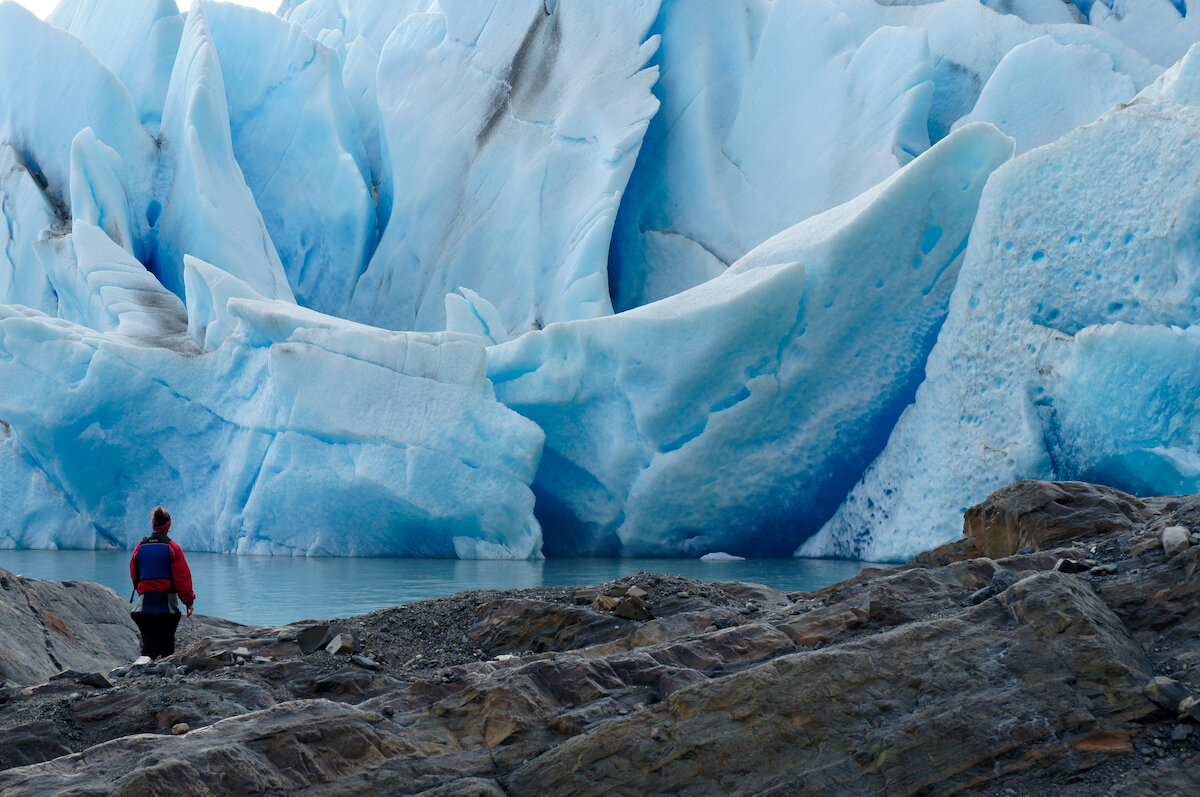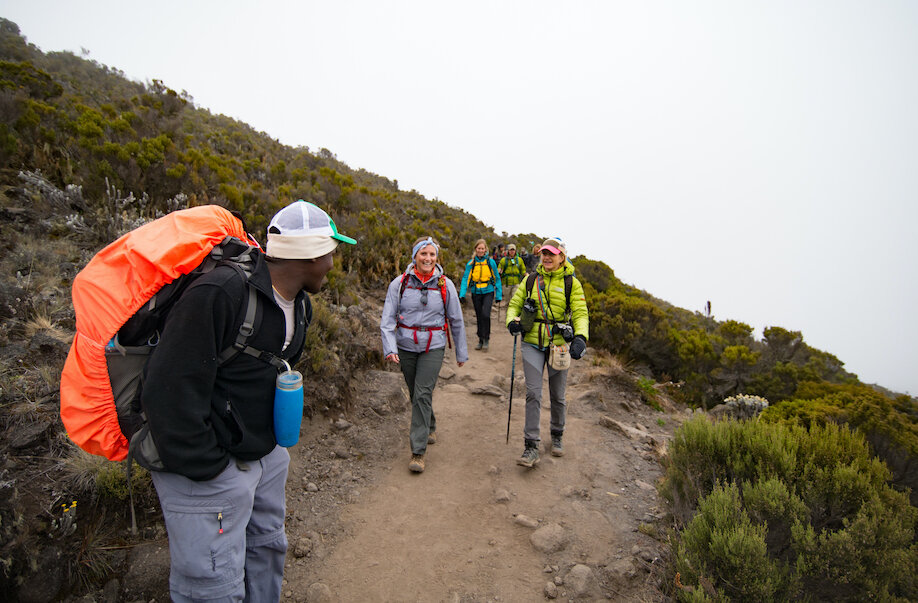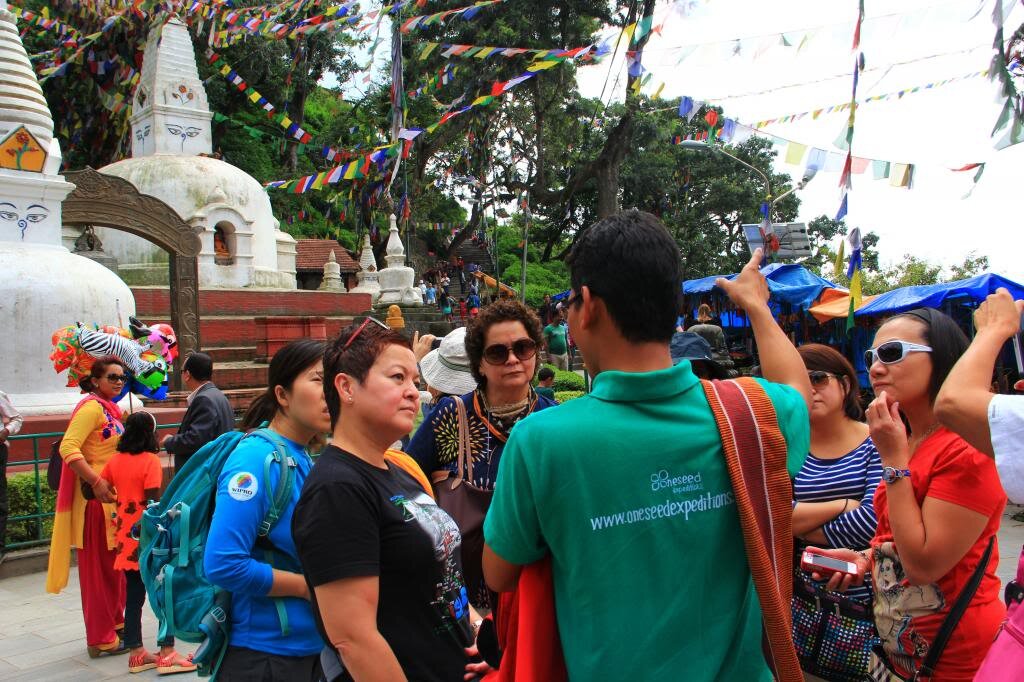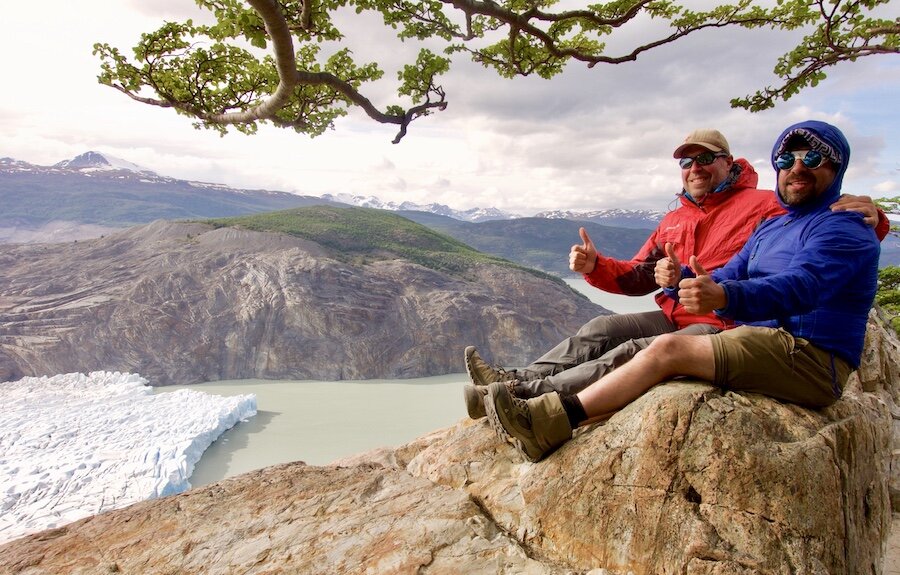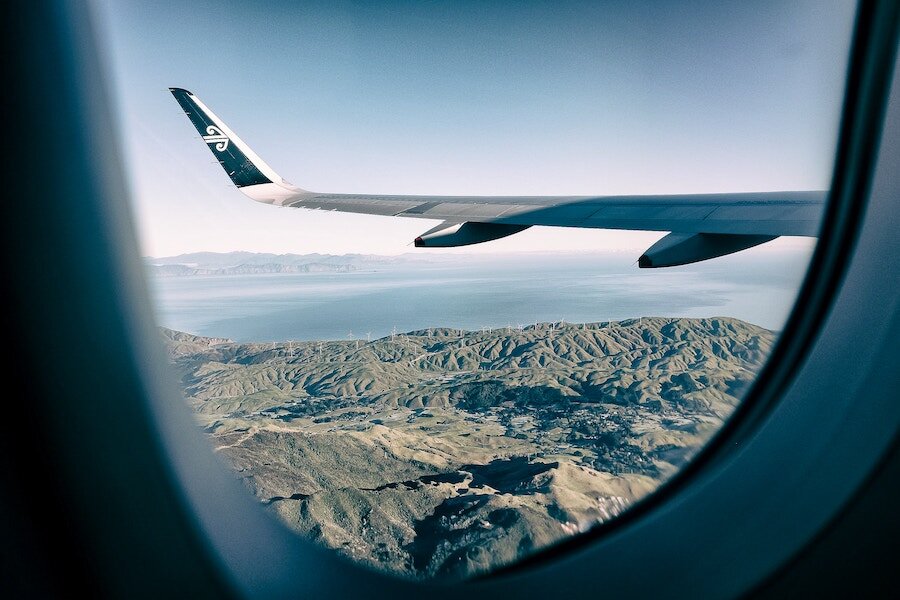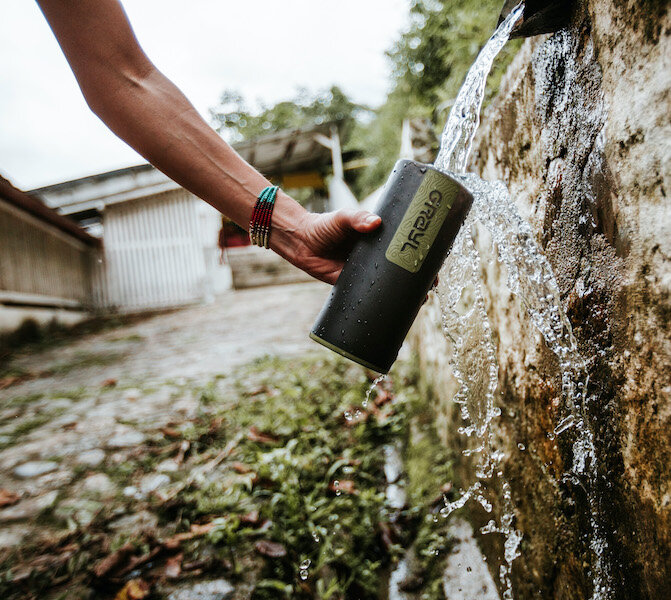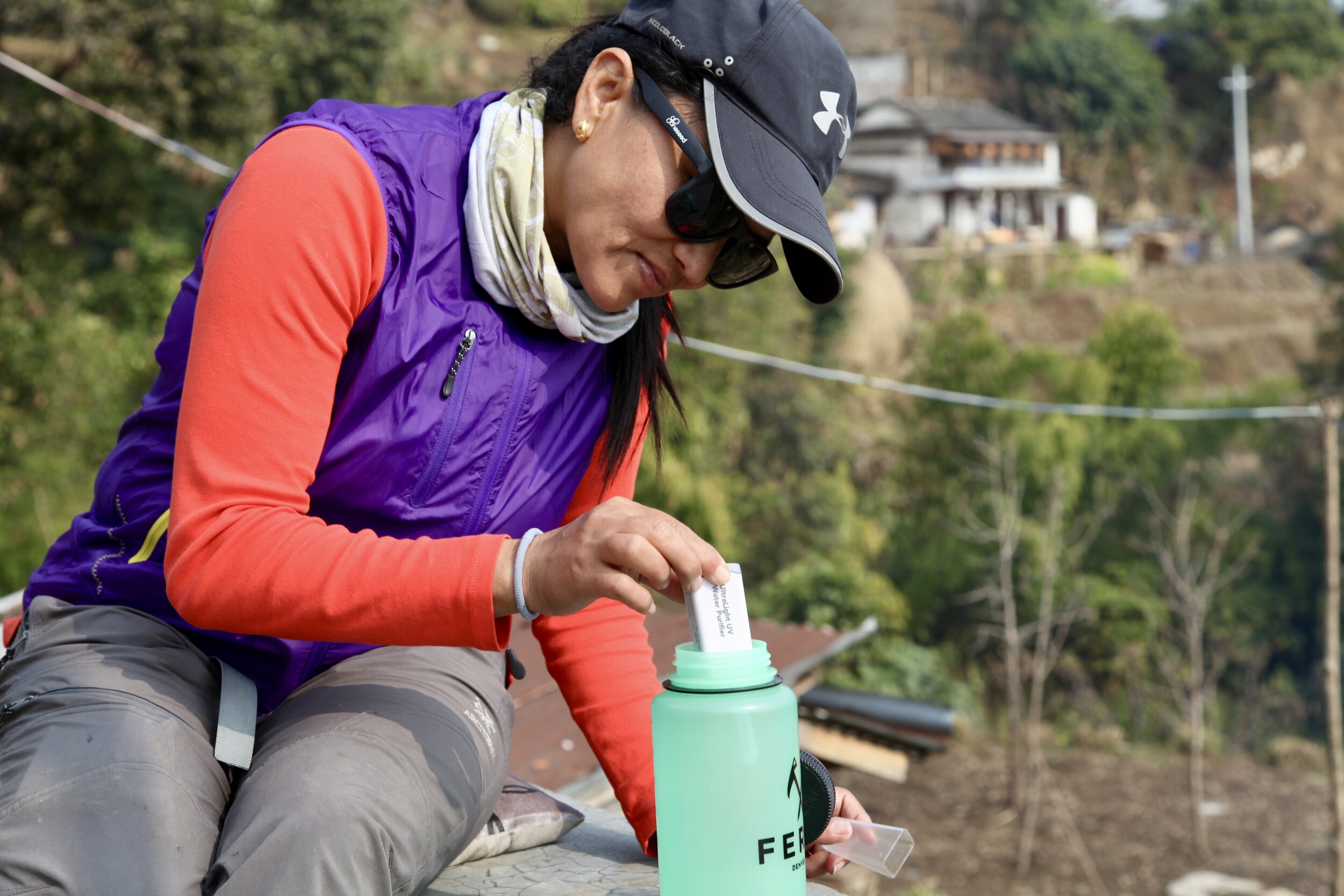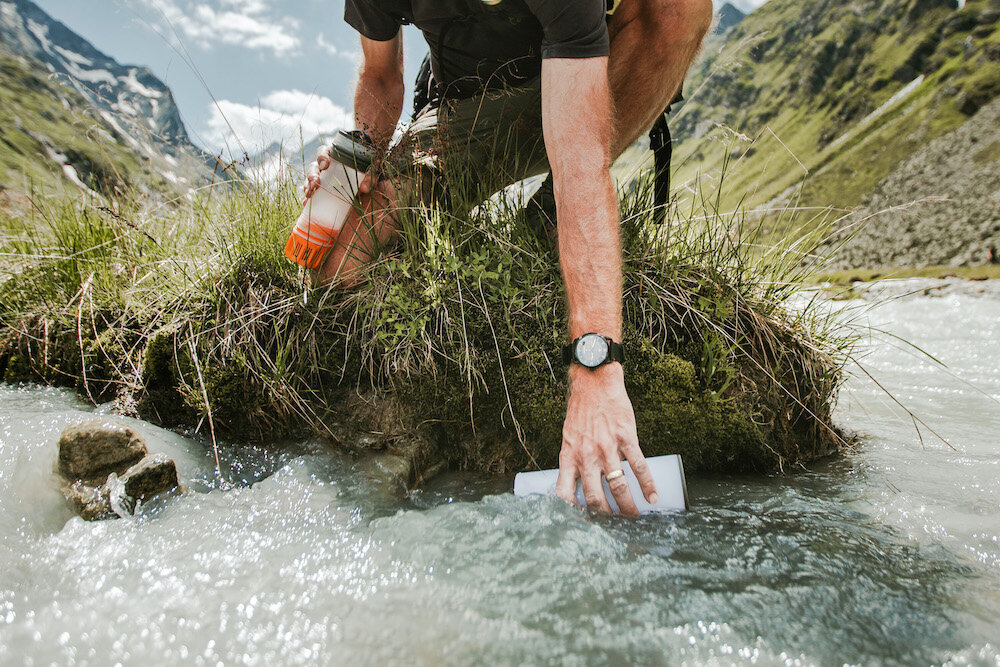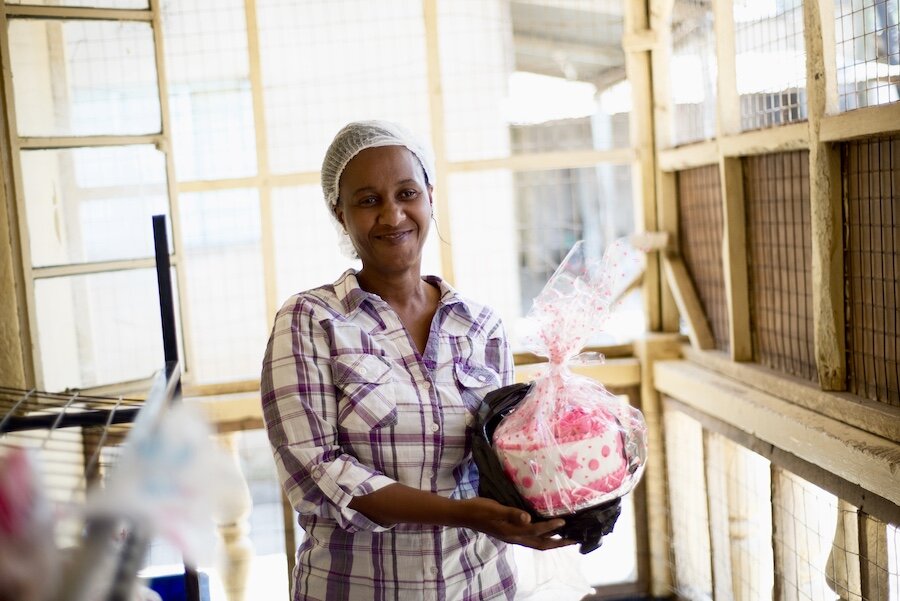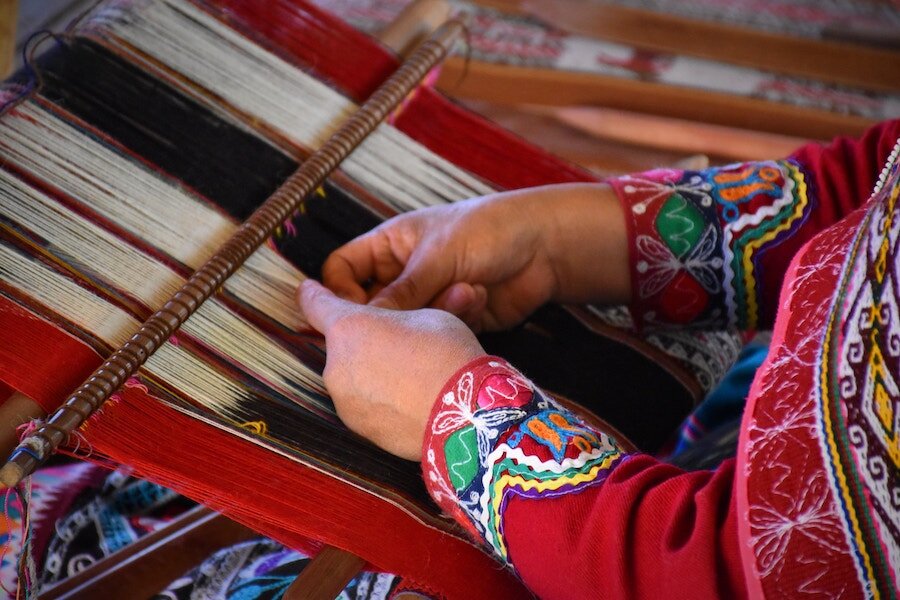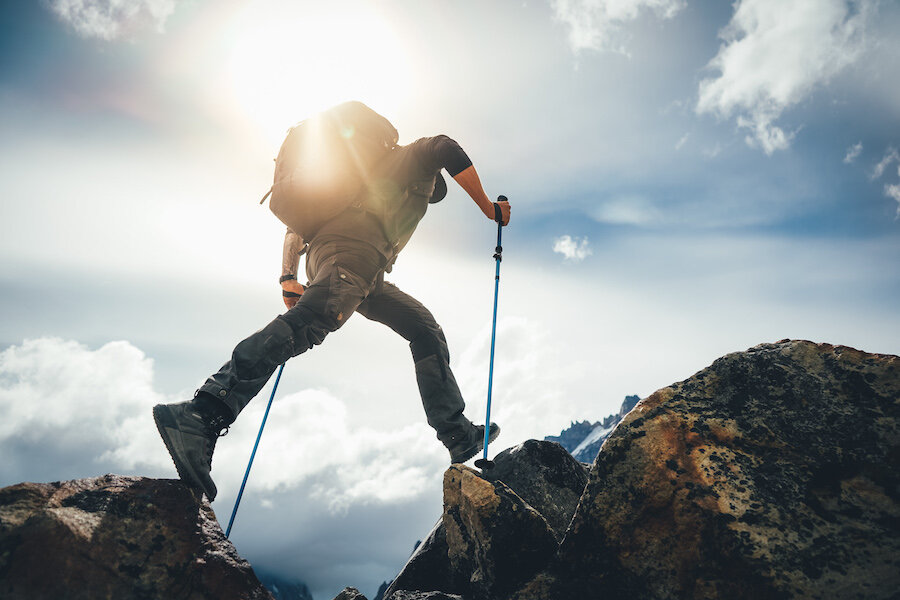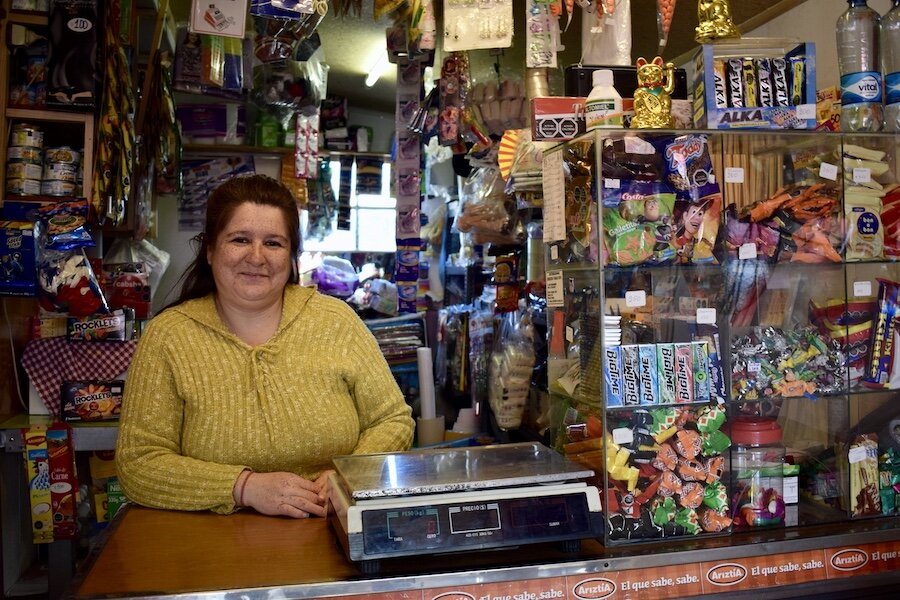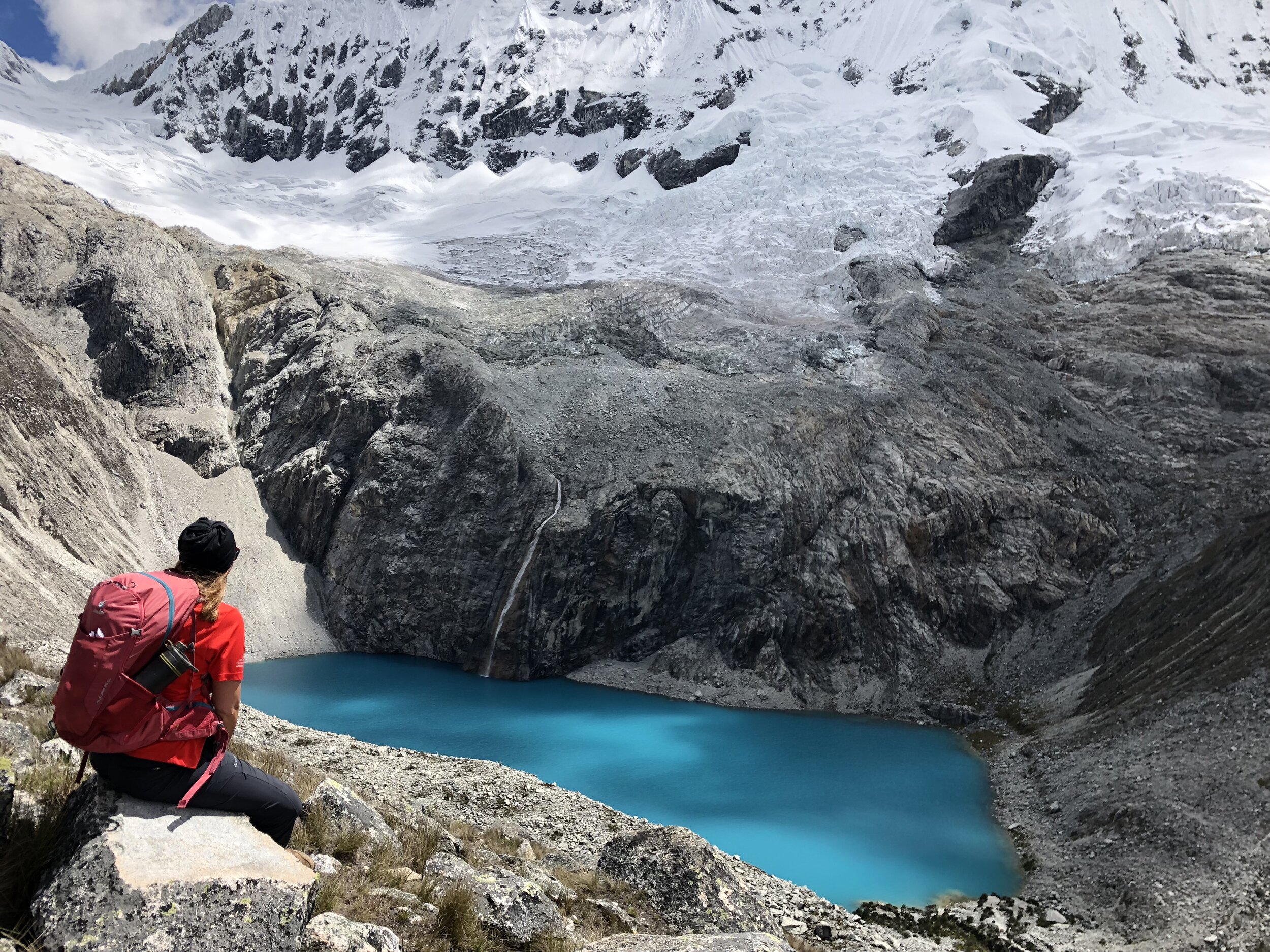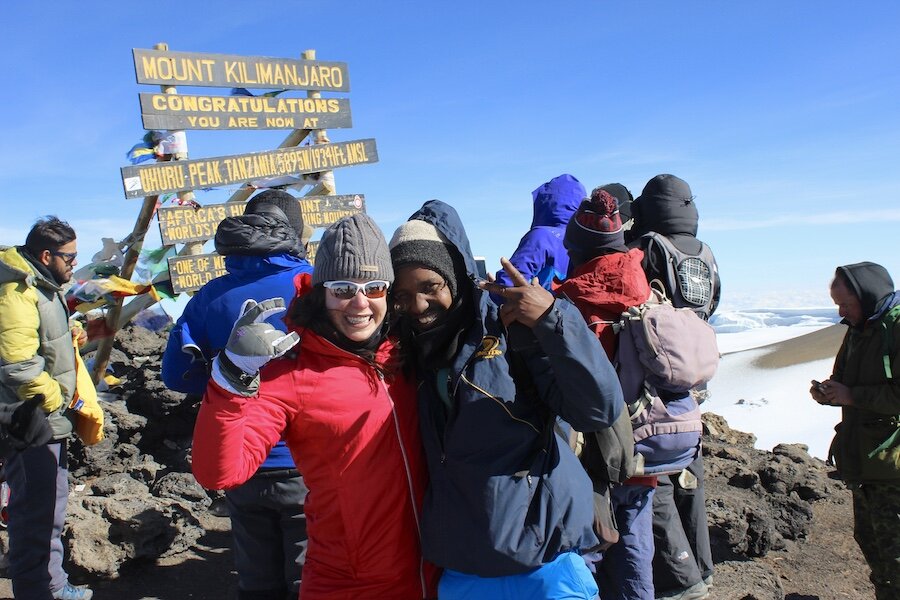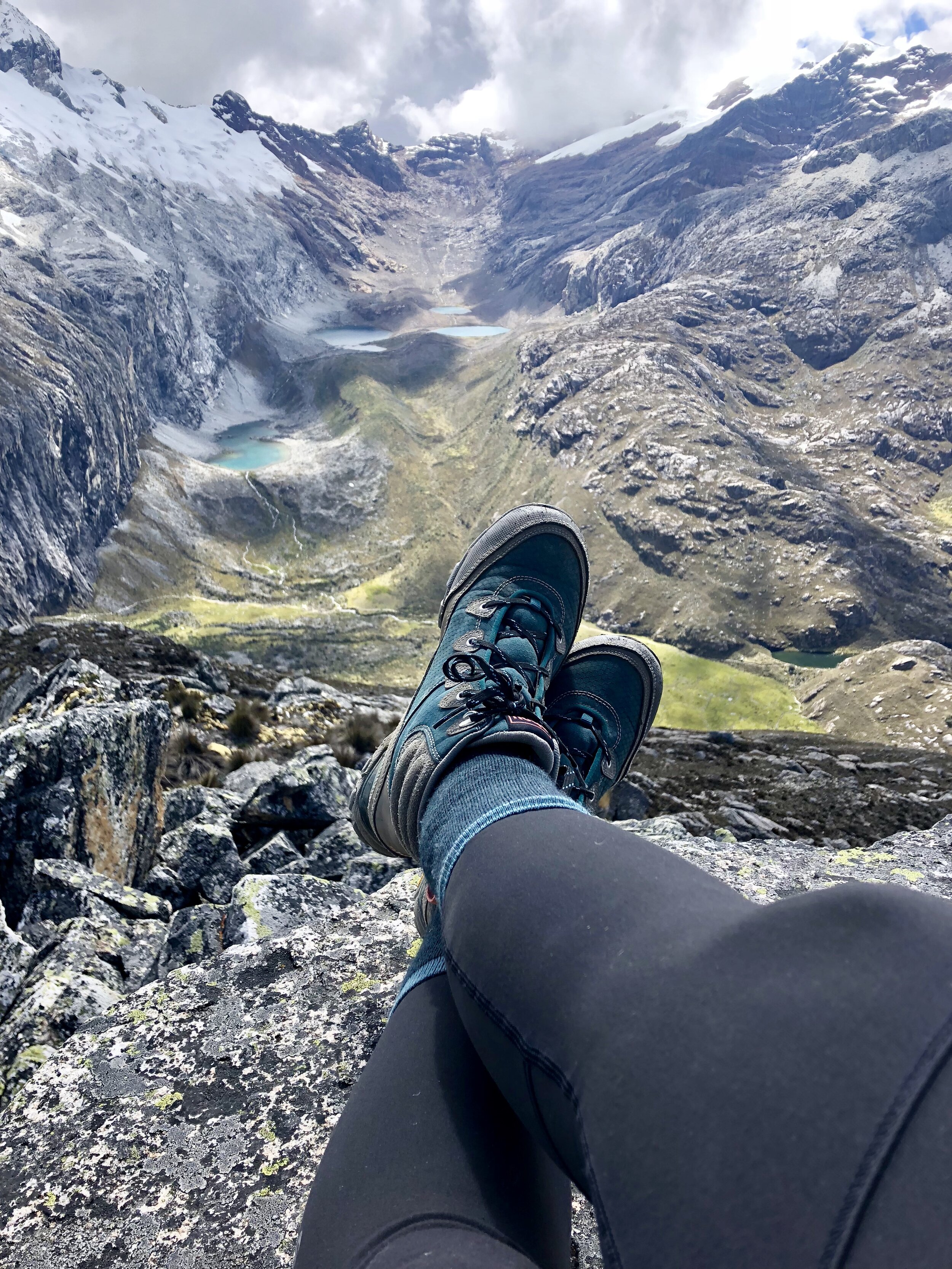1. Come prepared with helpful knowledge
Spend some time learning about the history and culture of the areas you plan to visit. Having a general background will provide a unique lens as you travel, plus your guides will be able to share more and help answer any questions in-country.
Be sure to research local customs before you arrive. What may be a friendly gesture in one country could be quite offensive in another. The easiest way to respect local customs is to know what they are.
Next, familiarize yourself with sustainability issues unique to that location. From water scarcity to animal welfare, every country (including your own) has unique and complex issues with sustainability. Get to know what issues your particular destination is facing to make responsible decisions while traveling.
Lastly, don’t forget to brush up on the local language. Bring a small notebook or make a note in your phone translating “hello/goodbye,” “yes/no”, “please/thank you,” plus a few more phrases that may come in handy. Learning just a few words of the language can go a long way. Don’t worry too much about your pronunciation, people always appreciate the effort!
2. Research your tour operator
Once in a lifetime trips are a big investment, and cost is always a factor when deciding where to travel. You may spend a few years saving to climb Kilimanjaro or visit Easter Island, but before booking the cheapest deal out there, consider the tour operator and why it costs what it does.
Responsible travel operators choose suppliers that have good environmental practices and are locally owned, they pay their staff fair wages, manage their own environmental impact, and consider animal welfare. While this can be difficult to verify, look for operators who opt-in to third party verification. Partner companies of the Kilimanjaro Porter’s Assistance Project are audited annually (and on every climb) for proper wages and fair treatment of porters. Travel companies with B Corp certification have had their business verified to meet a high standard of sustainability and are legally required to consider the impact of their decisions on their workers, customers, suppliers, community, and the environment. Greenwashing is rampant in most industries these days - be sure to look for official certifications.
It’s a fine balance between finding something affordable and ensuring that your money is being well spent. If a deal seems too good to be true, it probably is!
3. Offset the carbon emissions from your flight
It’s hard to avoid flying across continents to reach your next travel destination. Unfortunately, the biggest contributor to greenhouse gases in the travel industry are long-haul flights. The first and most important step is to invest in projects that offset your flight’s emissions to achieve climate neutrality. Luckily, it’s affordable and shouldn’t take more than 5 minutes.
First, find a reputable organization that has been vetted and is transparent about the projects that they fund. (OneSeed currently uses South Pole to offset all expeditions and internal operations). Next, input your flight itinerary and your carbon emissions will be calculated by the metric ton. Lastly, choose a carbon offset project to fund like forest reforestation, clean cooking stoves, and renewable energy projects.
While methods like carbon capture and sequestration would help move the needle beyond just net-zero, they aren’t yet available or affordable to the masses. It’s important to not let perfect get in the way of good. Changing habits slowly over time helps shift mindsets towards the importance of protecting our planet.
Other flights tips and tricks to lower your impact:
Minimize air travel
Take nonstop flights whenever possible
Fly economy rather than business or first class as you’re responsible for less of the calculated emissions based on available space
4. Bring a reusable water bottle filter
The amount of plastic filling our landfills and oceans is overwhelming. Microplastics are being found in our drinking water, even contaminating water and wildlife as far south as Antarctica. While big business and manufacturing need to change, we can always do our part.
Commit to using a reusable water bottle wherever you go, whether that’s at home or traveling abroad. When you’re in countries where the water is not safe to drink, it can be easy to reach for bottled water as it’s cheap and easy. Keep in mind that many countries don’t have an efficient recycling system, so that plastic bottle is likely going straight into the trash.
The best option is to bring a reusable water bottle and filter system. Try a SteriPen that purifies water through UV light. Water treatment tablets work well and don’t take up much room. A water bottle filter like GRAYL can be an easy all-in-one solution where you fill the water bottle and push the lid filter down to purify the water in about 15 seconds. Being prepared with a water filter system ensures that you can drink from the tap in your hotel, a spigot along the trail, or from a river or lake without the worry of getting sick.
5. Support local business, not chains or imports
Shopping local is a great way to ensure an economy and community thrive. Whether you’re traveling with a tour operator or on your own, make sure to stay at hotels that are locally owned and ideally have environmental best practices in place and/or give back to their local community. That goes for restaurants and other attractions that have private ownership as well. Consider venturing off-the-beaten-path from the more touristy neighborhoods or popular trekking routes to find a restaurant or store.
Keep in mind, when shopping for handicrafts, art, and other souvenirs, your money can go a long way. While haggling is common in many cultures, pay what feels fair rather than the cheapest possible price. What amounts to just one or two US dollars means quite a bit more to someone selling a custom handicraft that likely took hours or days to make. It’s always helpful to research your destination to see what is customary when purchasing goods. Lastly, be sure to purchase locally made goods (not ones imported from other countries) to support local artisans.
6. Give back responsibly
It’s great to want to give back when you travel. Instead of bringing miscellaneous items and gifts, ask your tour operator for recommendations or connect with a local nonprofit operating in the country. It’s best to ask first rather than assume as local organizations are the experts when it comes to what a community really needs, and what it doesn’t.
Consider donating the outdoor gear you use on your trek. It can help out a porter and lighten your luggage on the way home. Depending on your destination, guides and porters often appreciate hiking boots or quality outdoor gear if you want to donate them when you leave. Talk to your tour operator first or ask your head guide what would be most helpful.
If you’re set on volunteering your time while abroad, due diligence is key. Short term volunteer opportunities can often undermine local initiatives without addressing the root cause of issues a particular country or population faces. Monetary and resource support, as well as long-term engagement with skilled individuals, has shown to be the most successful at addressing issues in developing countries.
At OneSeed, our mission does not include volunteer opportunities, rather it offers travelers a way to directly bolster the local economy. By investing 10% of every trip cost in nonprofit microfinance partners, travelers help empower local entrepreneurs to launch or expand their business through collateral-free microloans. We do not visit borrowers during expeditions as we want to respect their time and privacy, and they are not always located near major cities or travel routes.
7. Remember how you got there
It’s been reported that more than 80% of the world’s population has never flown on an airplane. That may be hard to believe the next time you’re delayed in an overcrowded terminal, but it’s true. While traveling has its ups and downs, it’s important to remember why and how you got there. The freedom your citizenship and passport gives you to cross borders, to choose when and where you want to go is a great privilege. Most people will never have the opportunity to leave the country, let alone the region, they grew up in. Heading into a new adventure with the right mindset will really set the tone of your trip, and will help determine how you interact with the people and place.
Like anywhere in the world, most people welcome visitors with kindness and respect. Be sure to do the same and remember that you are in someone else’s home country and culture. Think twice before taking photos of people going about their daily lives and avoid photos of children. If you want to take someone’s photo, be sure to ask first. Some people may ask for money in exchange for a photo, which is not uncommon in high traffic tourist areas. Just agree on a price beforehand if you’re comfortable doing so.
And finally, remember that English is almost always a second or third language for everyone you will interact with while traveling. Frustrated that you can’t understand the shopkeeper’s broken English? It’s likely you can’t say as much in their own dialect. It’s pretty hard these days to travel far enough to see zero signs in English. Be grateful that the bathroom sign says “toilet” rather than “शौचालय”!


